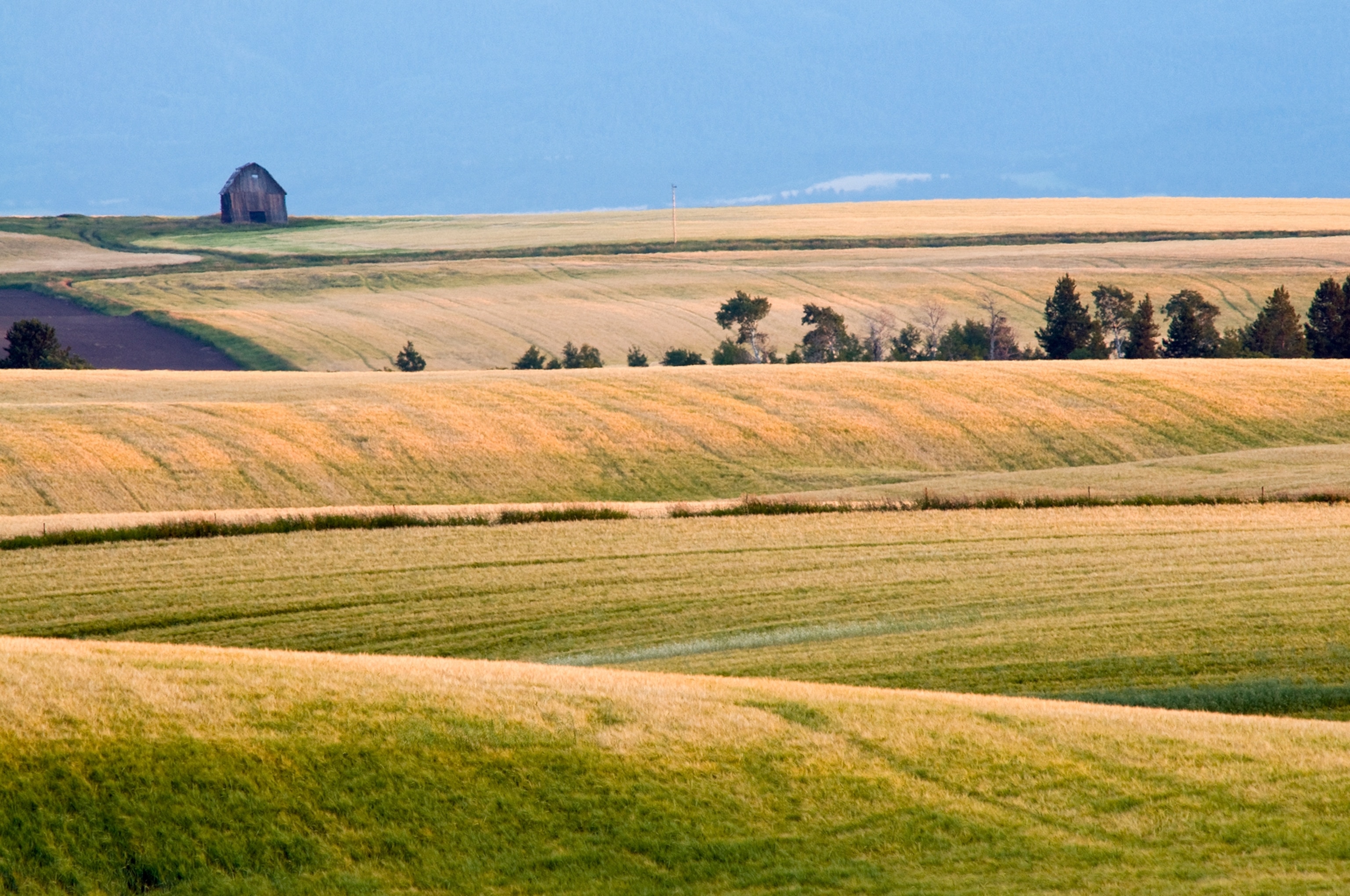
High CO2 Makes Crops Less Nutritious
Climate change could increase deficiencies in zinc and iron, new study suggests.
This story is part of National Geographic's special eight-month Future of Food series.
Crops grown in the high-CO2 atmosphere of the future could be significantly less nutritious, a new study published today in Nature suggests. Based on hundreds of experiments in the field, the work reveals a new challenge as society reckons with both rising carbon emissions and malnutrition in the future.
Scientists generally predict that crop yields could fall in a warmer world—though higher atmospheric CO2 by itself should raise yields, as plants find it easier to extract CO2 from the air to make carbohydrates. (Related: "Cornfields Could Yield Less by Midcentury.")
The effect climate change might have on the nutritional value of crops, as opposed to their yield, has been even murkier. Previous studies have given conflicting results.
In the largest study yet, Samuel Myers of Harvard University and colleagues report that the CO2 levels expected in the second half of this century will likely reduce the levels of zinc, iron, and protein in wheat, rice, peas, and soybeans. Some two billion people, the researchers note, live in countries where citizens receive more than 60 percent of their zinc or iron from these types of crops. Deficiencies of these nutrients already cause an estimated loss of 63 million life-years annually.
C3 Crops Hit Hardest
Conducted over six growth years on field sites in Japan, Australia, and the United States, the study compared crops grown in normal conditions with ones grown in nearby experimental plots where the air is enriched with CO2 via open-air sprayers. The current atmospheric CO2 level is 400 parts per million; in the enriched plots, it was between 546 and 586 parts per million, a level scientists expect the atmosphere to reach in four to six decades.
In addition to wheat, rice, peas, and soybeans, which all use a form of photosynthesis known as C3, Myers and his colleagues studied corn and sorghum, which use C4 photosynthesis, a faster kind. They found relatively little effect of CO2 enrichment on the nutritional value of the C4 crops.
In the C3 crops, however, they found significant declines in zinc and iron. The largest was a 9.3 percent drop in the zinc level in wheat. They also found reduced levels of protein in wheat, rice, and peas, but not in soybeans.
Myers says the "enormous number of observations" in the study, which involved multiple cultivars, or varieties, of each of the six crops, allowed a total of 143 comparisons between cultivars fed enhanced CO2 and cultivars that grew in normal air. "That gave us the statistical power to resolve a question which has been open in the literature," he says. "Crops are losing nutrients as CO2is going up."
Unfortunately, the new study sheds little light on why more CO2 in the atmosphere should mean less nutritious plants. One hypothesis has been that plants in an enriched atmosphere produce so much carbohydrate that it dilutes the other nutrients.
The new study seems to rule out that hypothesis: Instead of a uniform dilution of all other nutrients in the crops, it found that nutrients changed unevenly when CO2 was higher.
Quality and Quantity
The need to balance changes in yield against changes in the nutritional value of crops makes predicting the future of agriculture an even more complicated task, says Stephen Long, an agronomist at the University of Illinois at Urbana-Champaign who did not participate in the study.
"Rising global CO2 increases yield and decreases water use by crops, and this is often presented as one positive of atmospheric change," Long says. But the Nature study's "significant" finding suggests that higher-CO2 environments will mean less nutritional crops, so that "increased quantity is at the expense of quality."
CO2 enrichment experiments at Long's university have also shown that rising CO2 levels lower crops' resistance to pests. By exposing the plants to levels of CO2 similar to those used in the Harvard-led study, says Long, crop damage from three major crop pests doubled.
Myers and his colleagues suggest there should be a global effort to develop new breeds of wheat, rice, peas, and soybeans that show resistance to higher CO2 levels. While the various cultivars of wheat, peas, and soybeans in their study all suffered similar nutrient losses in response to higher CO2, rice offered a ray of hope: Its cultivars varied wildly in their response. "So there may be some basis for breeding rice and potentially other strains that are less sensitive to this effect," says Myers.
Recent efforts by the U.S. Agency for International Development and the Bill and Melinda Gates Foundation to breed rice and other crops with enhanced nutrition under current atmospheric CO2 levels have shown some success, he notes. But those efforts haven't been without setbacks. "There's been some indications that when you do that, you often suffer yield declines," Myers says. "So it's not entirely clear that you can have your cake and eat it too."